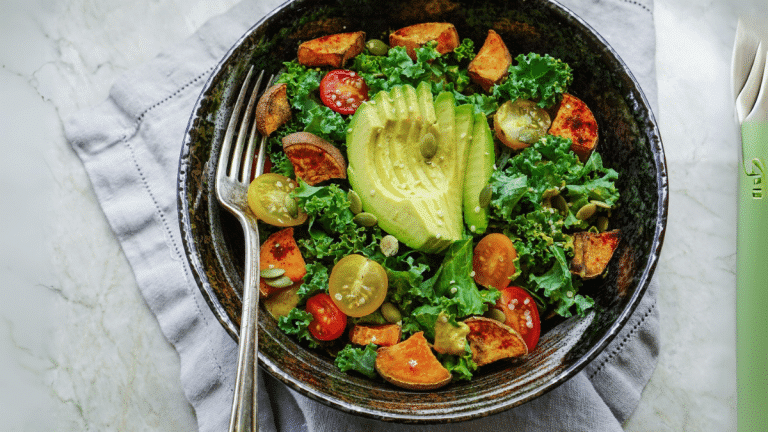If you’ve ever felt sore for days after a workout or struggled to bounce back after intense training, it’s time to look at what’s on your plate. The food you eat plays a big role in how quickly your body heals. More and more athletes are turning to plant-based eating to improve recovery time—and for good reason.
By focusing on whole, plant-based foods, you can give your body the nutrients it needs to recover faster.
Let’s break it down and see how plant-based eating can work wonders for your recovery.
Contents
Why Recovery Time Matters?
Recovery isn’t just about resting; it’s the process where your muscles heal, grow stronger, and get ready for your next workout. Eating the right foods can shorten recovery time. Also, they can help you feel better and perform better.
Plant-based eating is full of recovery-boosting nutrients. It also reduces inflammation, supports muscle repair, and keeps your body energized.
Reduce Inflammation With Plant-Based Foods
Intense exercise causes inflammation in your muscles. While this is normal, too much inflammation slows down recovery. Plant-based eating helps fight inflammation naturally.
Fruits like blueberries and cherries are loaded with antioxidants that reduce muscle soreness. Leafy greens like spinach and kale also help your body recover faster.
Therefore, it is not wrong to say that simply by eating these anti-inflammatory foods, you’ll spend less time feeling stiff and more time feeling strong.
What Recovery Nutrients are Present in Plants?
Plant-based eating gives you a ton of vitamins and minerals to help your body heal. For example:
- Potassium (found in bananas and sweet potatoes) prevents cramps and helps your muscles recover.
- Magnesium (in nuts, seeds, and avocados) relaxes muscles and reduces tension.
- Vitamin C (from oranges and bell peppers) boosts collagen production, which helps repair tissue.
Remember all of these nutrients speed up your recovery time. Also, they will work great to make sure your body has everything it needs to heal.
The Power of Plant-Based Protein
Worried about protein? Don’t be. Plant-based eating offers plenty of protein sources, like lentils, chickpeas, tofu, and quinoa. These vegan protein options help repair and rebuild your muscles after a workout.
While plant-based proteins don’t always have all essential amino acids. However, it is important to mention that combining foods like rice and beans or hummus and whole-grain bread can provide a complete protein profile.
It is also important for you to know that Plant-Based vegan collagen support is of great importance. One can get enough amount of collagen from such sources to fulfill its body’s needs. All to enjoy brighter skin, healthy hair, and shiny nails.
Faster Recovery For Vegan Athletes
Many vegan athletes notice a faster recovery time after switching to plant-based eating. Why? Plant-based foods are easier to digest than heavy animal-based meals, so your body spends less energy on digestion and more on recovery.
Plus, plant-based eating avoids dietary cholesterol and reduces saturated fat, which can contribute to inflammation. This means less muscle soreness and quicker recovery overall.
Boost Your Blood Flow
Good blood flow is key for recovery because it delivers oxygen and nutrients to your muscles. Foods like beets, arugula, and spinach contain nitrates, which improve circulation. Better blood flow means faster healing and less fatigue.
Beet juice, in particular, has been shown to reduce muscle soreness and boost performance. Adding it to your routine is an easy way to improve recovery time for vegan athletes.
Hydration and Electrolytes
Staying hydrated is just as important as eating the right foods. Many plant-based foods, like cucumbers, watermelon, and celery, have high water content and provide electrolytes like potassium and magnesium. This keeps your body hydrated and helps prevent muscle cramps.
The Gut-Health Connection
A healthy gut means better nutrient absorption, which helps your body recover faster. Plant-based eating is rich in fiber, which supports good gut health. Foods like sauerkraut, kimchi, and kombucha are great for your gut and can speed up recovery time.
Simple Tips For Faster Recovery
Here are some easy ways to use plant-based eating to improve recovery:
- Make a Recovery Smoothie. For this purpose, you can blend spinach, frozen berries, bananas, and plant-based protein powder for a nutrient-packed drink.
- Add More Greens. It is a great tip to include leafy greens like kale and Swiss chard in your meals for extra vitamins.
- Snack on Nuts and Seeds. Keep in mind that Walnuts and chia seeds are full of healthy fats and protein.
- Stay Hydrated. For this purpose, you can also drink coconut water or eat hydrating fruits like watermelon after workouts.
Final Words
Plant-based eating is undoubtedly a powerful way to speed up recovery time and feel your best. So, all you need to do is to focus on nutrient-rich, anti-inflammatory foods. This will help you reduce muscle soreness, repair your body faster, and get back to doing what you love.
Remember, switching to a plant-based diet doesn’t mean missing out—it means fueling your body with the best tools for recovery. So, why not give it a try? You might be surprised at how much faster you bounce back.

